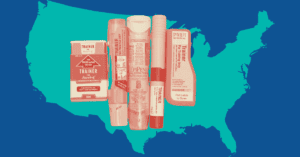The Food & Drug Administration surprisingly rejected ARS’s nasal epinephrine spray, called neffy, citing that they want more data from the company before approval. The nasal epinephrine spray was set to be an alternative to epinephrine auto-injectors that are used by those with life-threatening allergies currently.
While epinephrine (epi) has been used in the medical setting since 1905, auto-injectors were approved by the FDA in 1987 with the creation of the EpiPen. Auto-injectors were seen as a huge step forward to epi usage as syringe and vial epi was the only option available until then. There has not been much advancement in epi since then until neffy. During the committee meeting for the approval of neffy, experts and families alike advocated for the needless form. However, with the surprising rejection, the FDA is requesting more data on the dispersal method as it was not used on anyone experiencing anaphylaxis – only rhinitis from mild allergic reactions.
As anaphylaxis is a life-threatening allergic reaction, there are strong ethical concerns about getting the requested data – with the FDA acknowledging that in its rejection of neffy. With epinephrine being a well-established medication and neffy utilizing already approved dispersal methods, the FDA was in semi-uncharted waters with this particular approval. ARS cannot go around inducing anaphylaxis and then administering neffy so it is unclear how or when ARS will be able to get additional data.
Hopefully, the FDA and ARS will come to an agreement with proper data to get this epinephrine nasal spray approved. Neffy will not only provide more options for families to administer epinephrine but also give a needle-free option for schools to use in case of an emergency. Code Ana is watching this process closely and hopes to be able to train schools on a needless form of epinephrine sooner rather than later!




